Abstract
OBJECTIVE: To compare outcome and cost-effectiveness of the two primary addiction treatment options, day hospitals (DH) and traditional outpatient programs (OP) in a managed care organization, in a population large enough to examine patient subgroups. DATA SOURCES: Interviews with new admissions to a large HMO's chemical dependency program in Sacramento, California between April 1994 and April 1996, with follow-up interviews eight months later. Computerized utilization and cost data were collected from 1993 to 1997. STUDY DESIGN: Design was a randomized control trial of adult patients entering the HMO's alcohol and drug treatment program (N = 668). To examine the generalizability of findings as well as self-selection factors, we also studied patients presenting during the same period who were unable or unwilling to be randomized (N = 405). Baseline interviews characterized type of substance use, addiction severity, psychiatric status, and motivation. Follow-up interviews were conducted at eight months following intake. Breathanalysis and urinalysis were conducted. Program costs were calculated. DATA COLLECTION: Interview data were merged with computerized utilization and cost data. PRINCIPAL FINDINGS: Among randomized subjects, both study arms showed significant improvement in all drug and alcohol measures. There were no differences overall in outcomes between DH and OP, but DH subjects with midlevel psychiatric severity had significantly better outcomes, particularly in regard to alcohol abstinence (OR = 2.4; 95% CI = 1.2, 4.9). The average treatment costs were $1,640 and $895 for DH and OP programs, respectively. In the midlevel psychiatric severity group, the cost of obtaining an additional person abstinent from alcohol in the DH cohort was approximately $5,464. Among the 405 self-selected subjects, DH was related to abstinence (OR = 2.1; 95% CI = 1.3, 3.5). CONCLUSIONS: Although significant benefits of the DH program were not found in the randomized study, DH treatment was associated with better outcomes in the self-selected group. However, for subjects with mid-level psychiatric severity in both the randomized and self-selected samples, the DH program produced higher rates of abstention and was more cost-effective. Self-selection in studies that randomize patients to services requiring very different levels of commitment may be important in interpreting findings for clinical practice.
Full text
PDF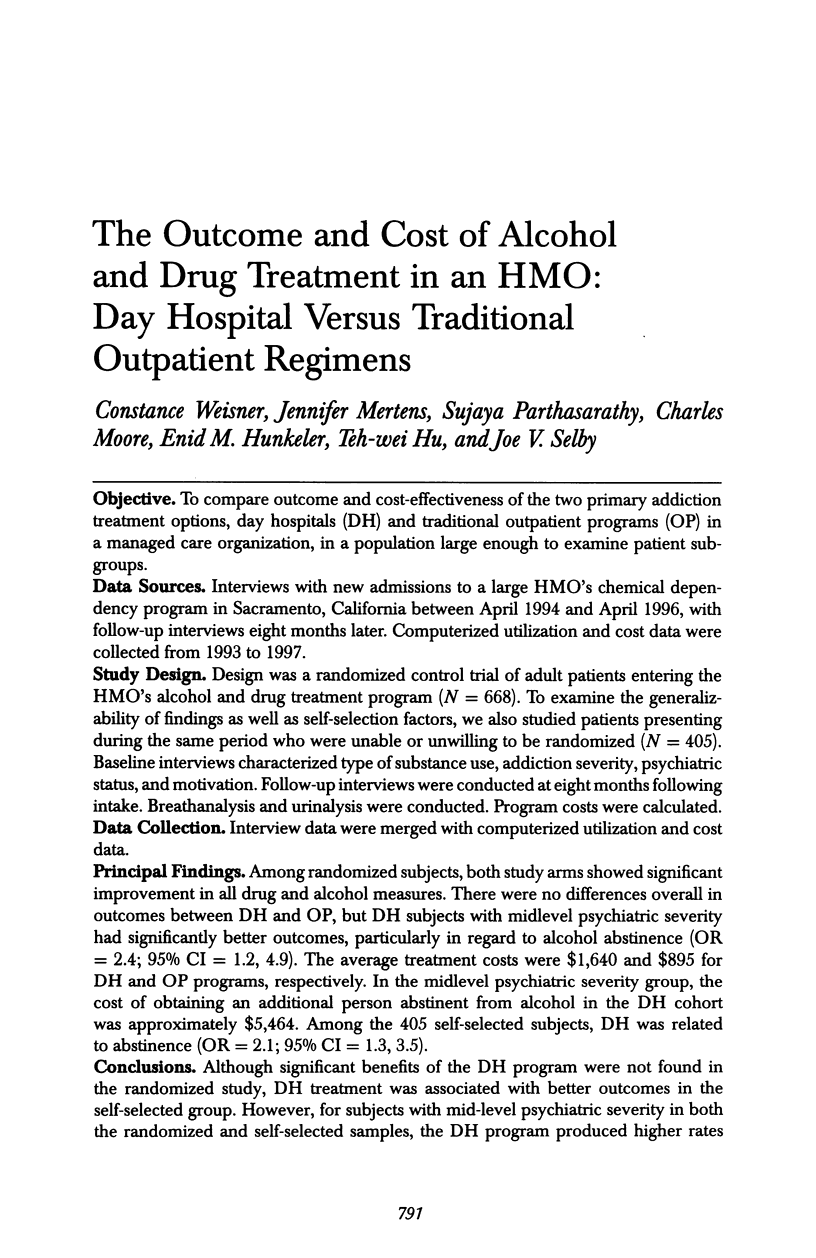
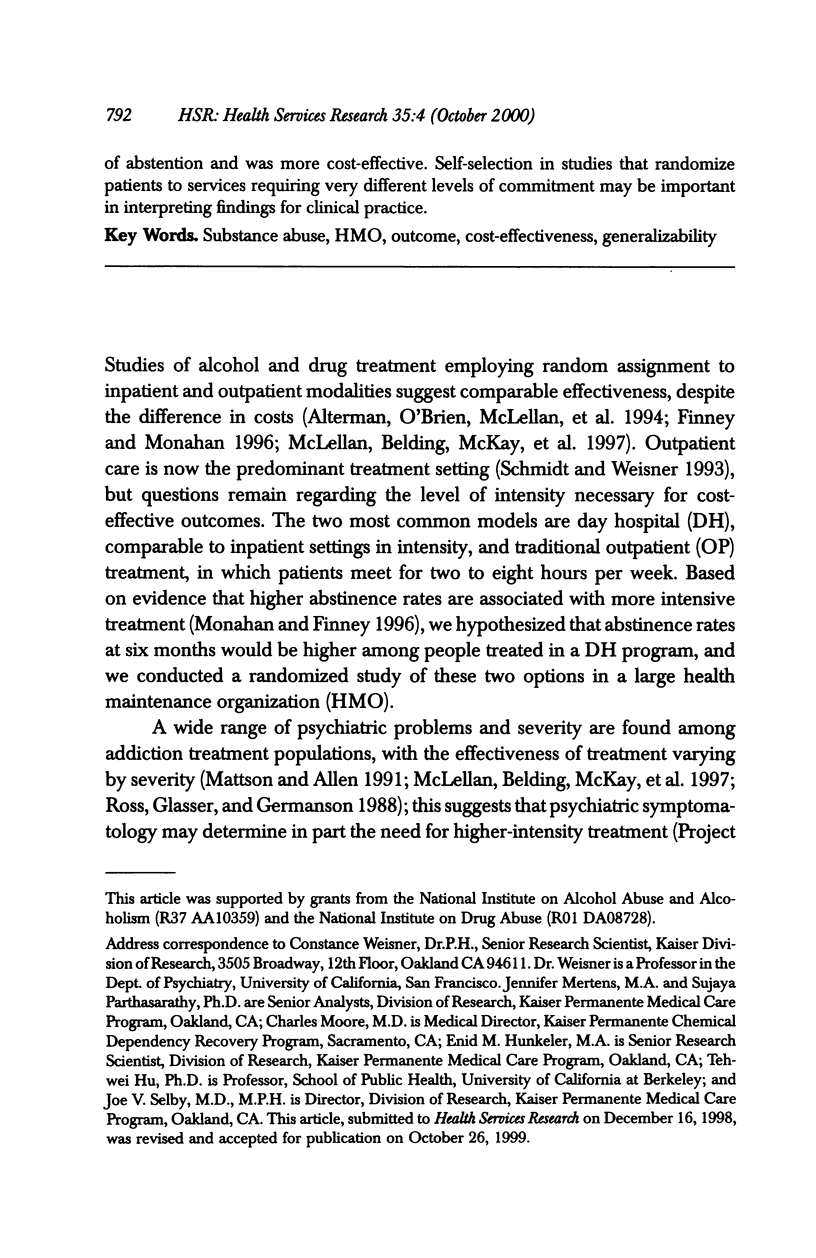
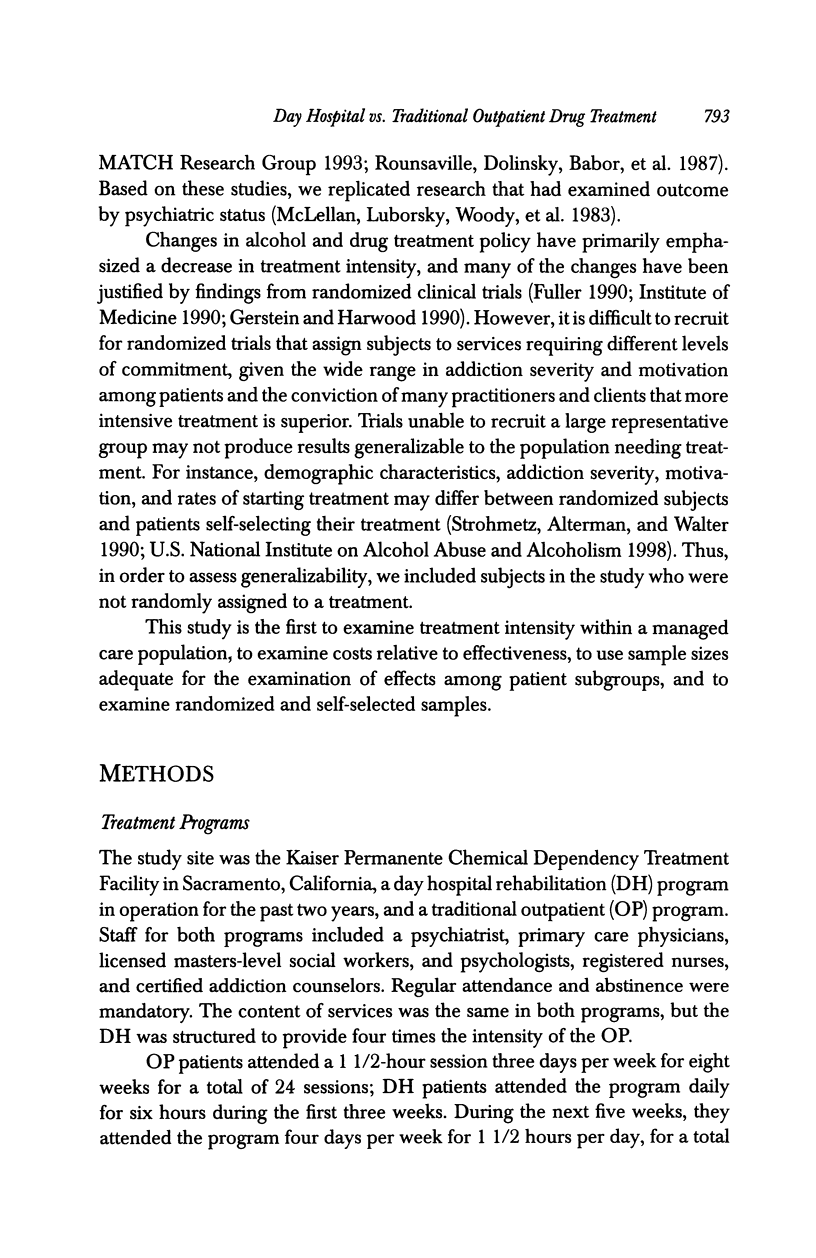
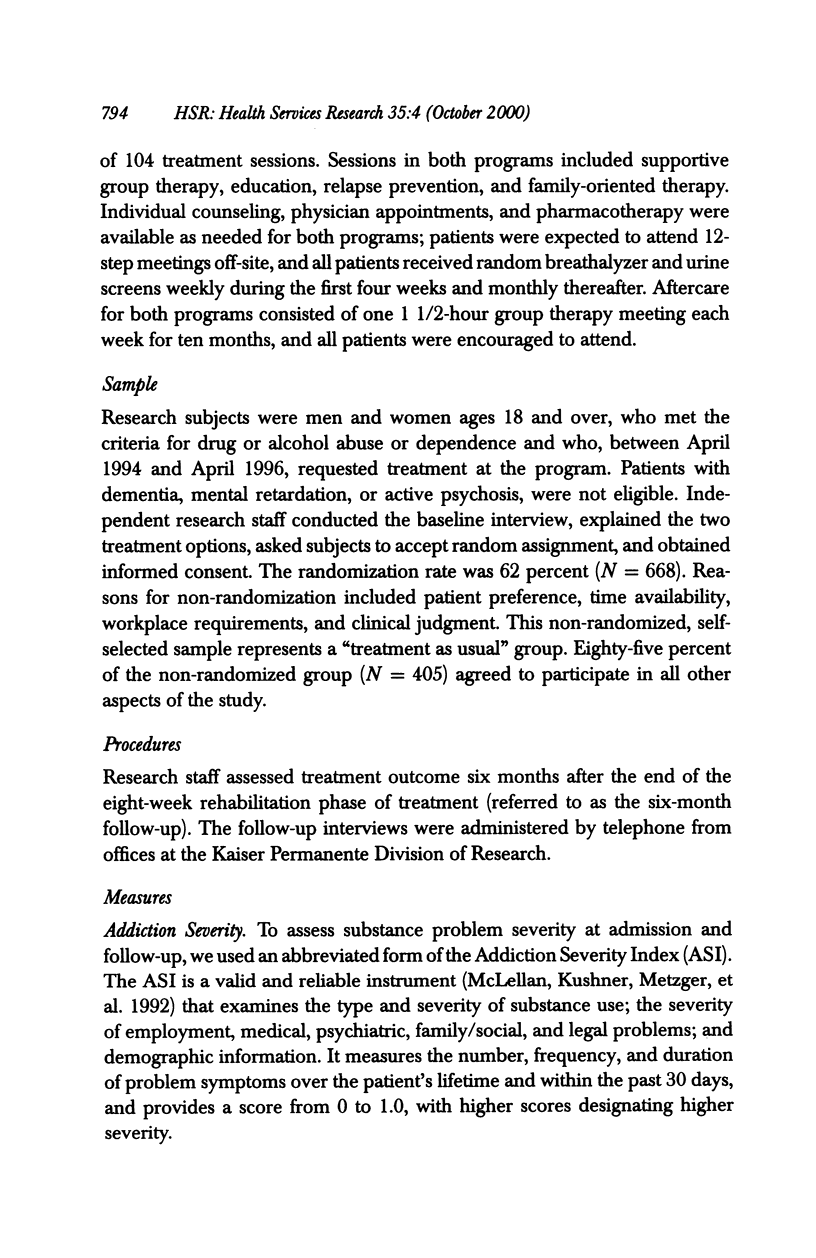
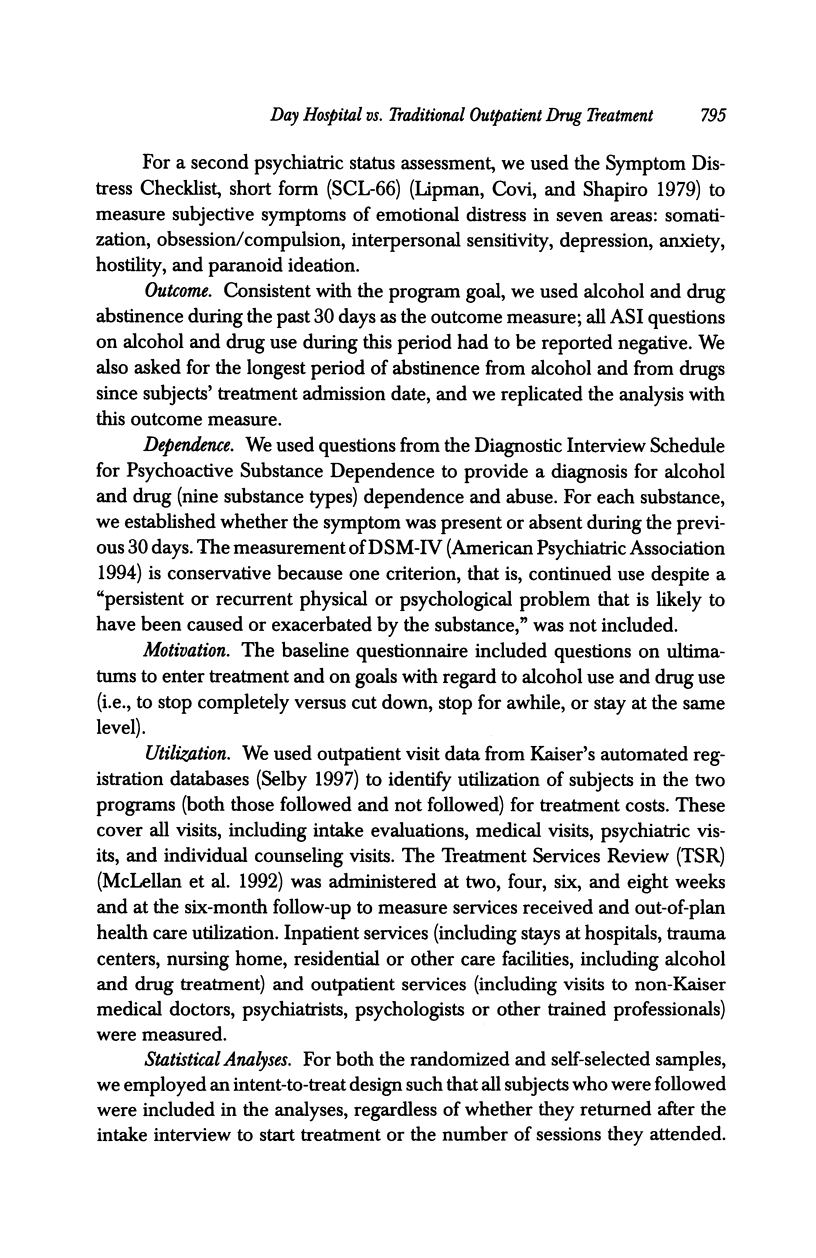
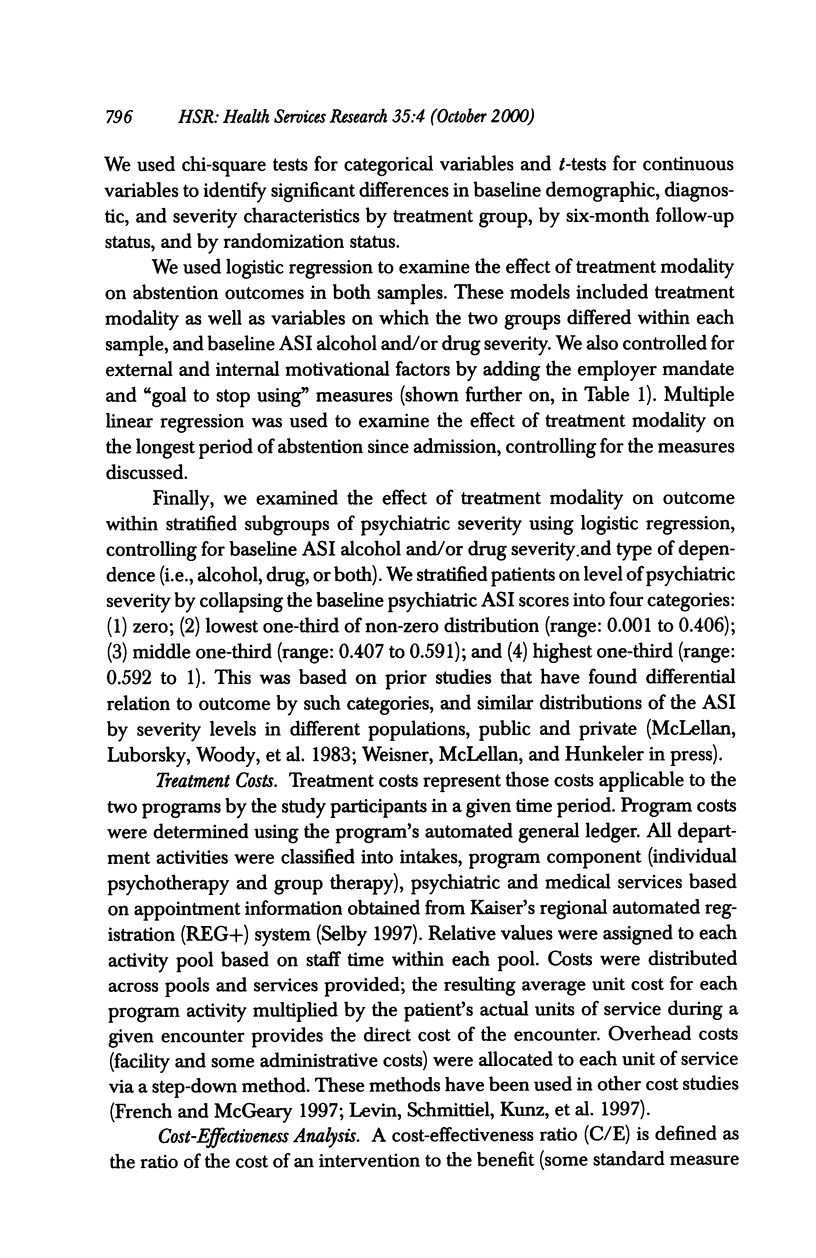
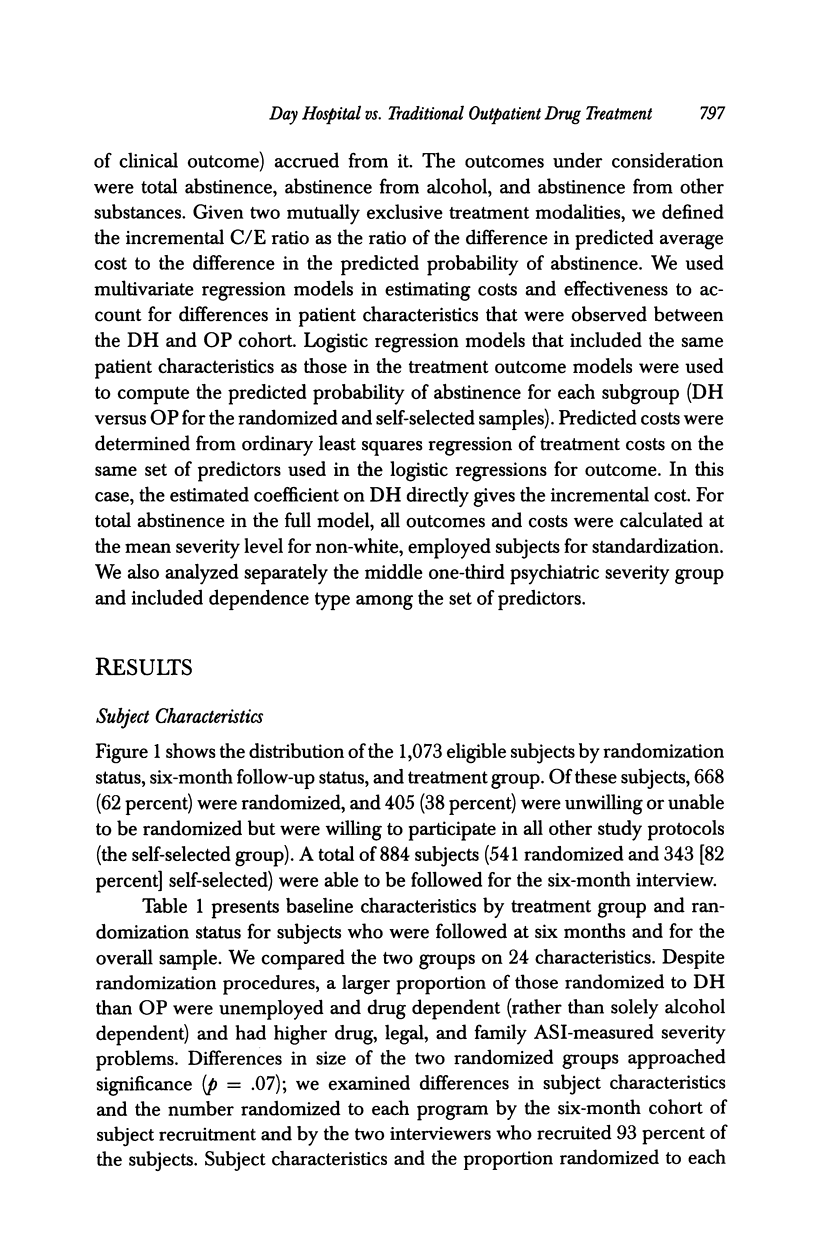
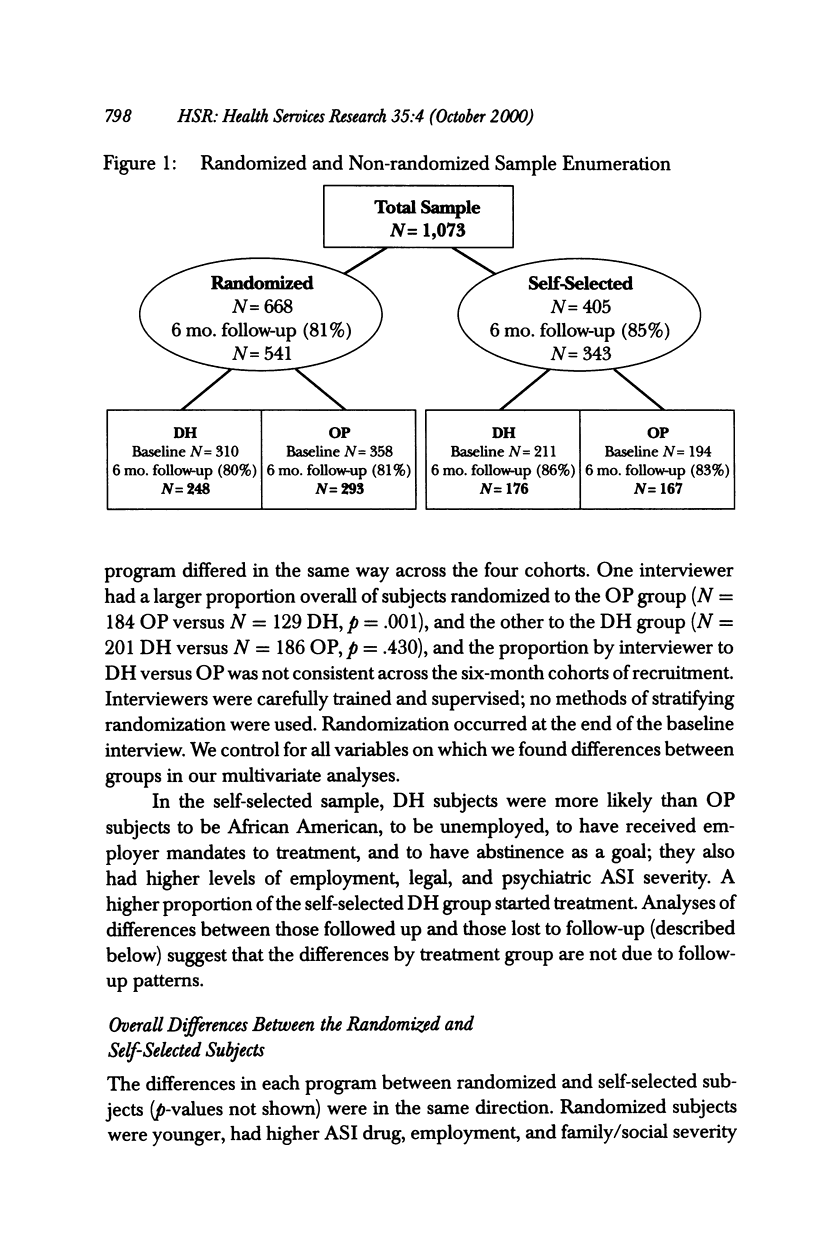
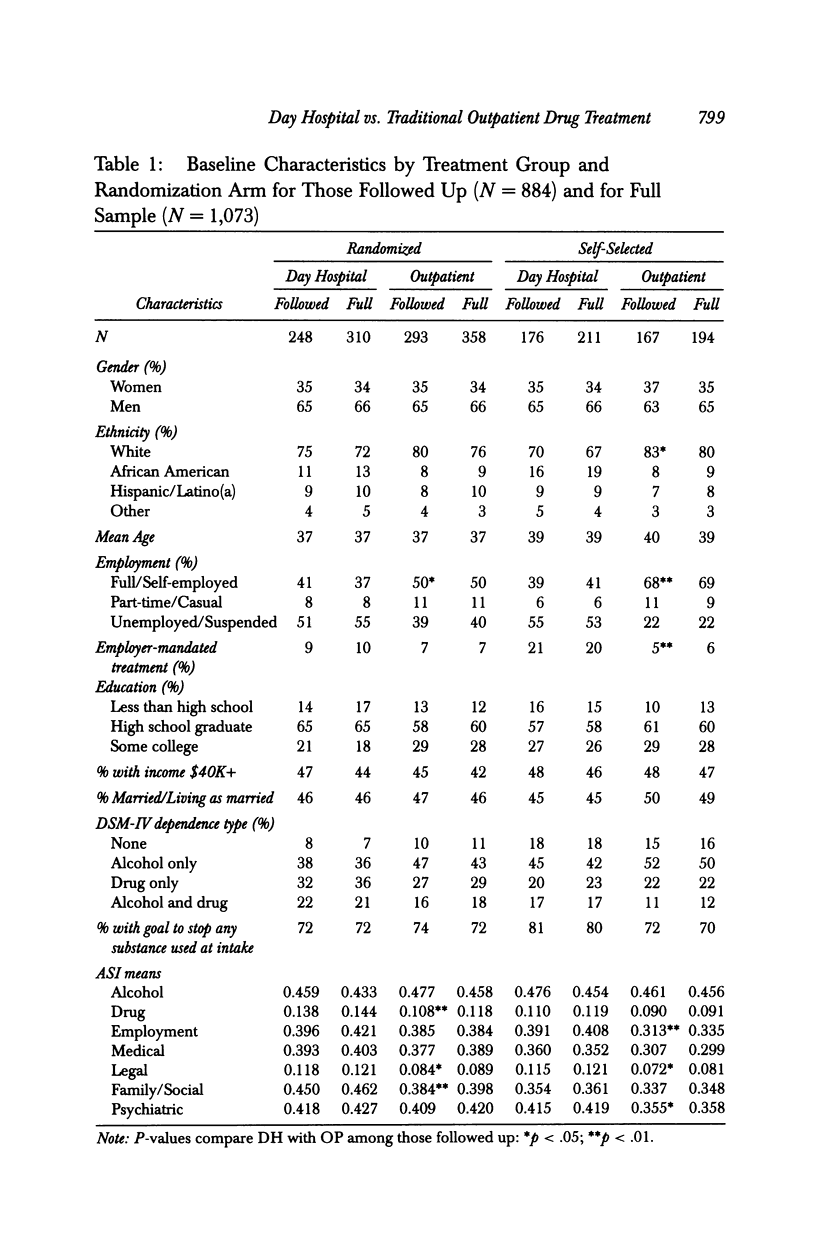
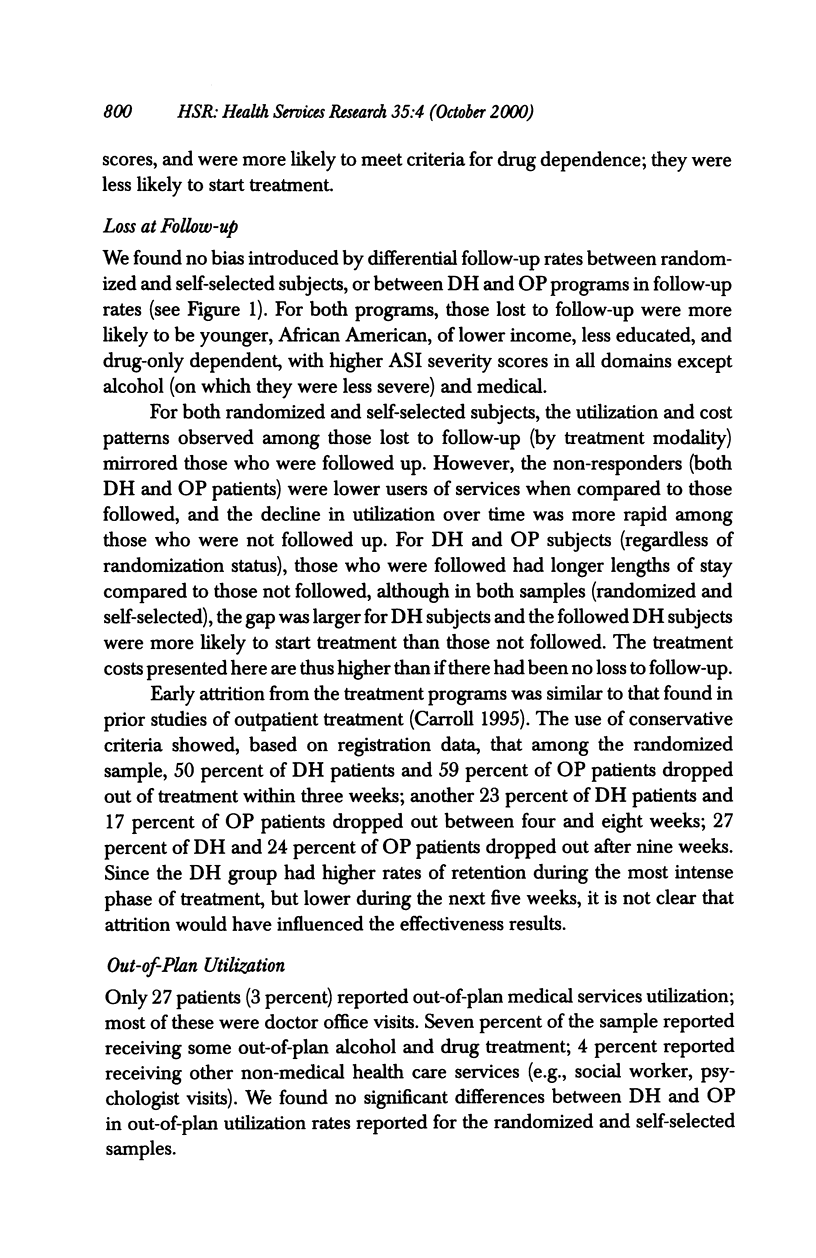
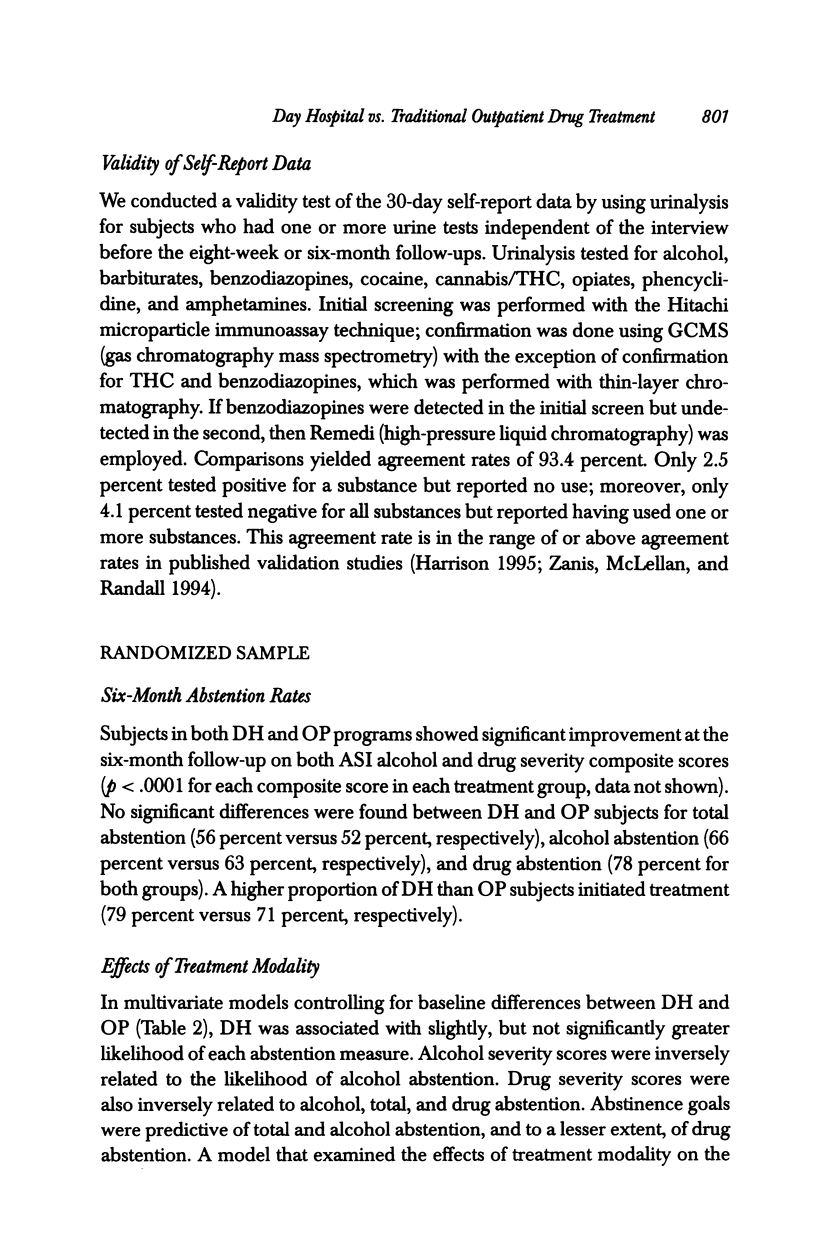
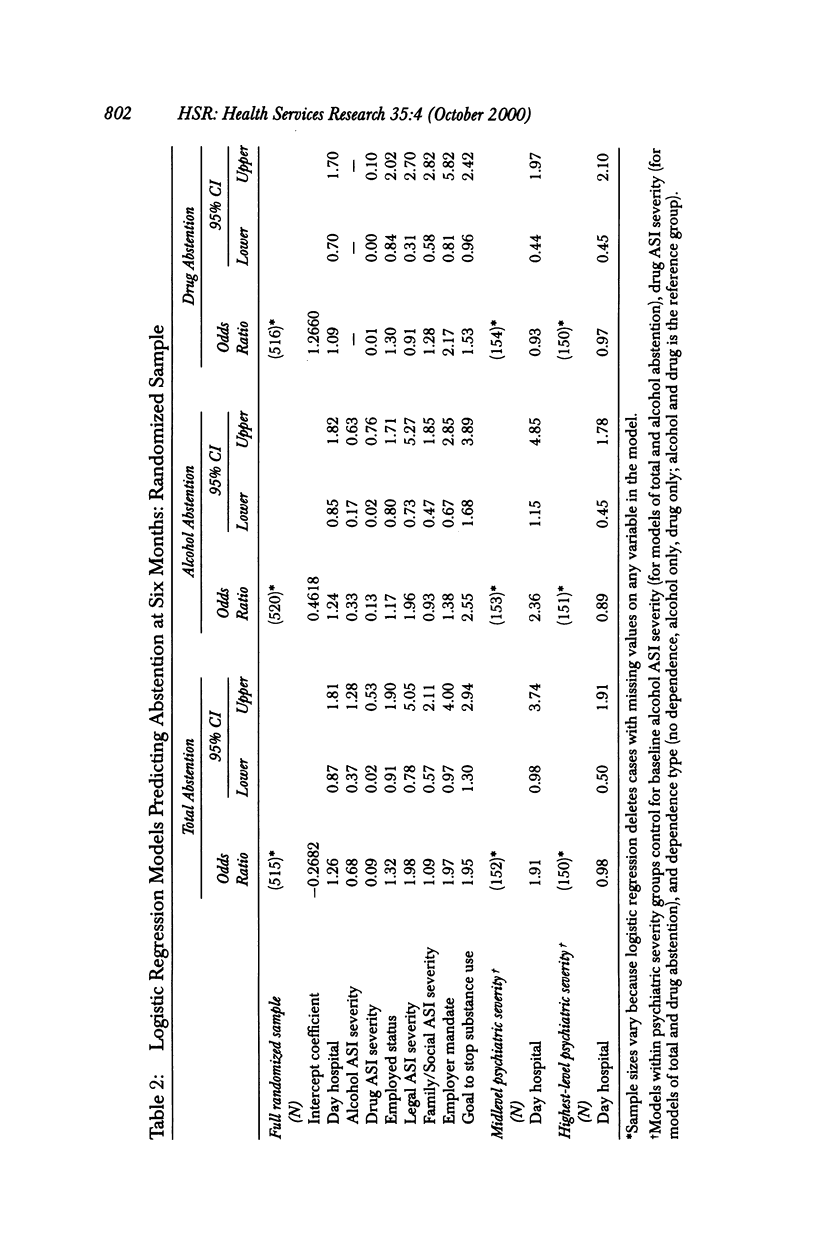
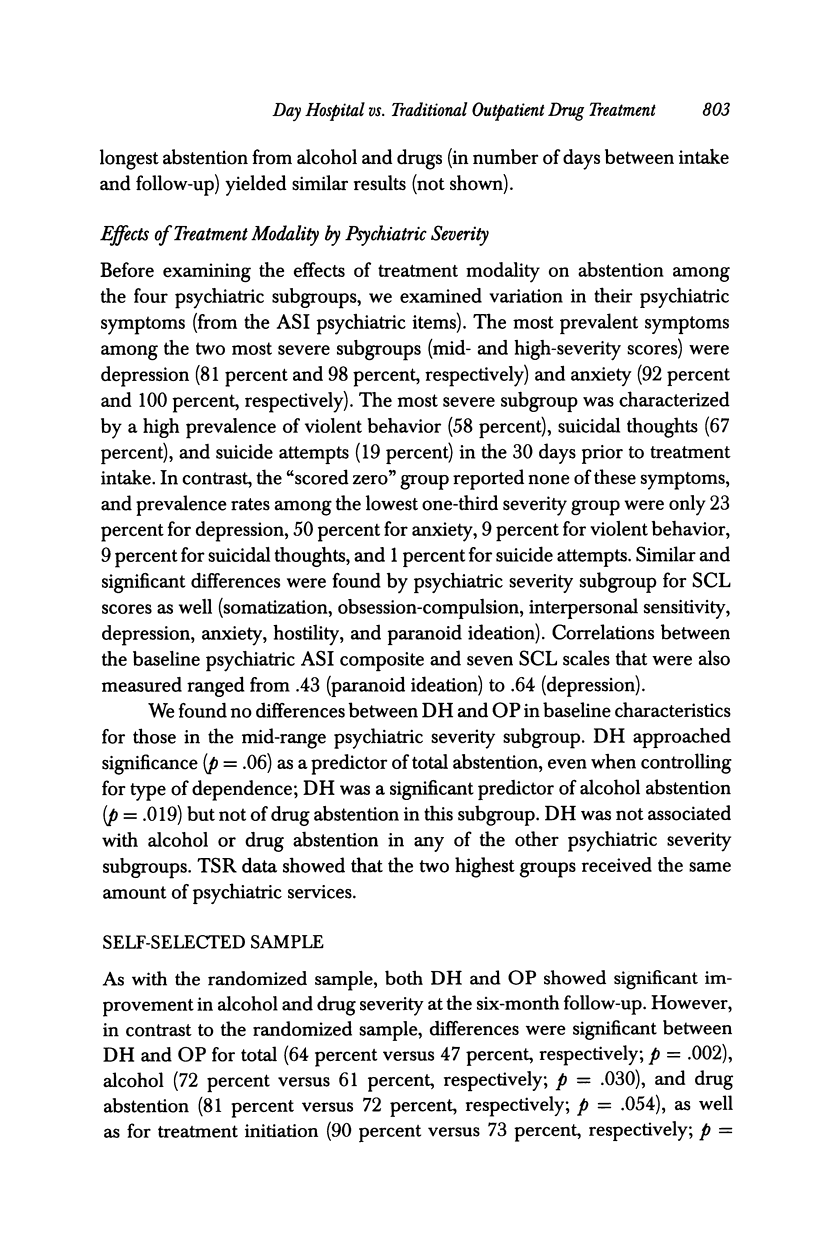
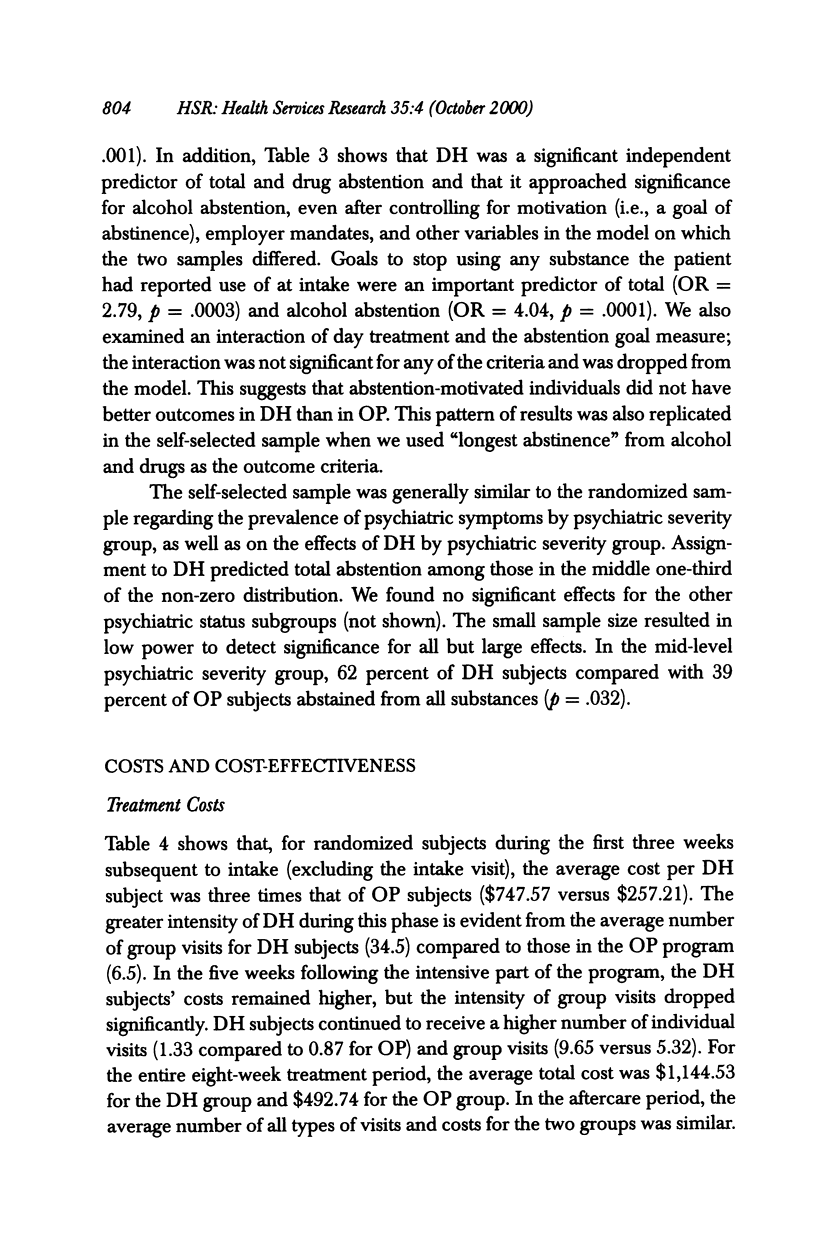
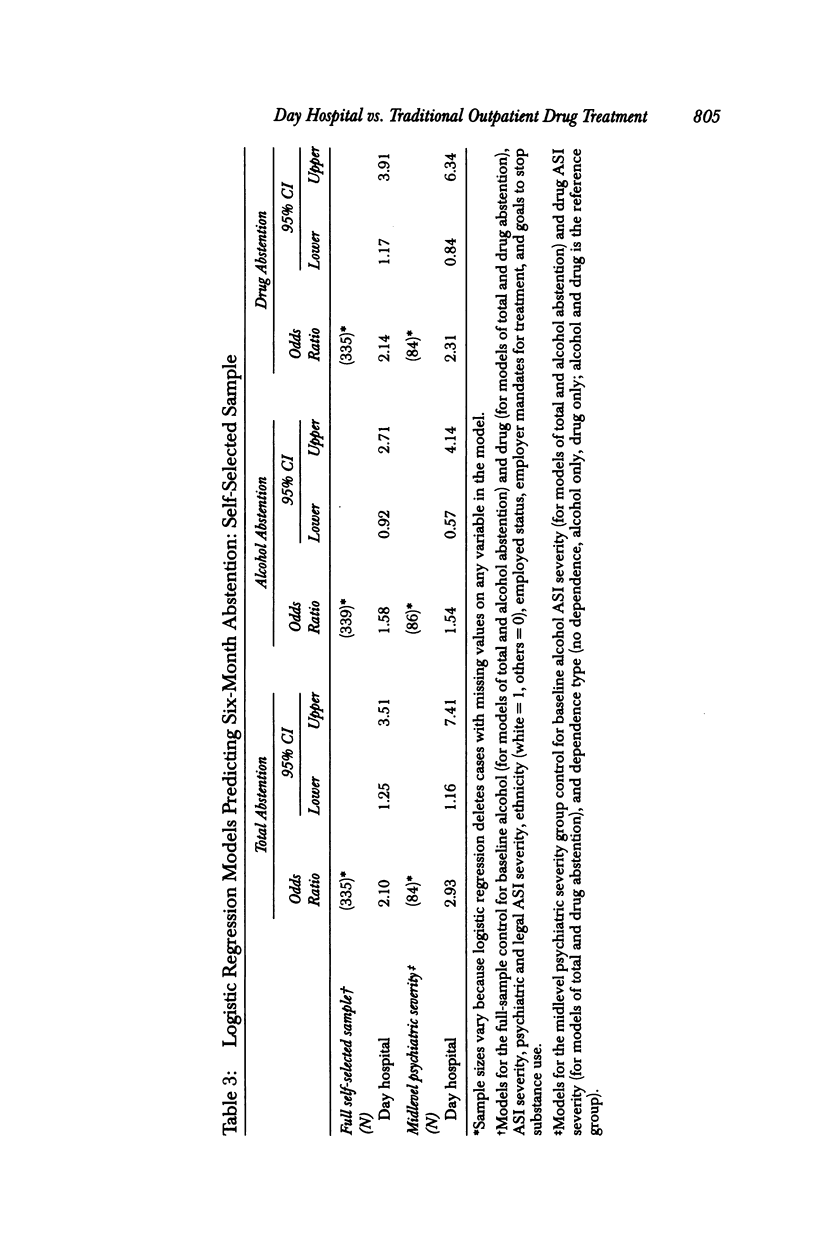
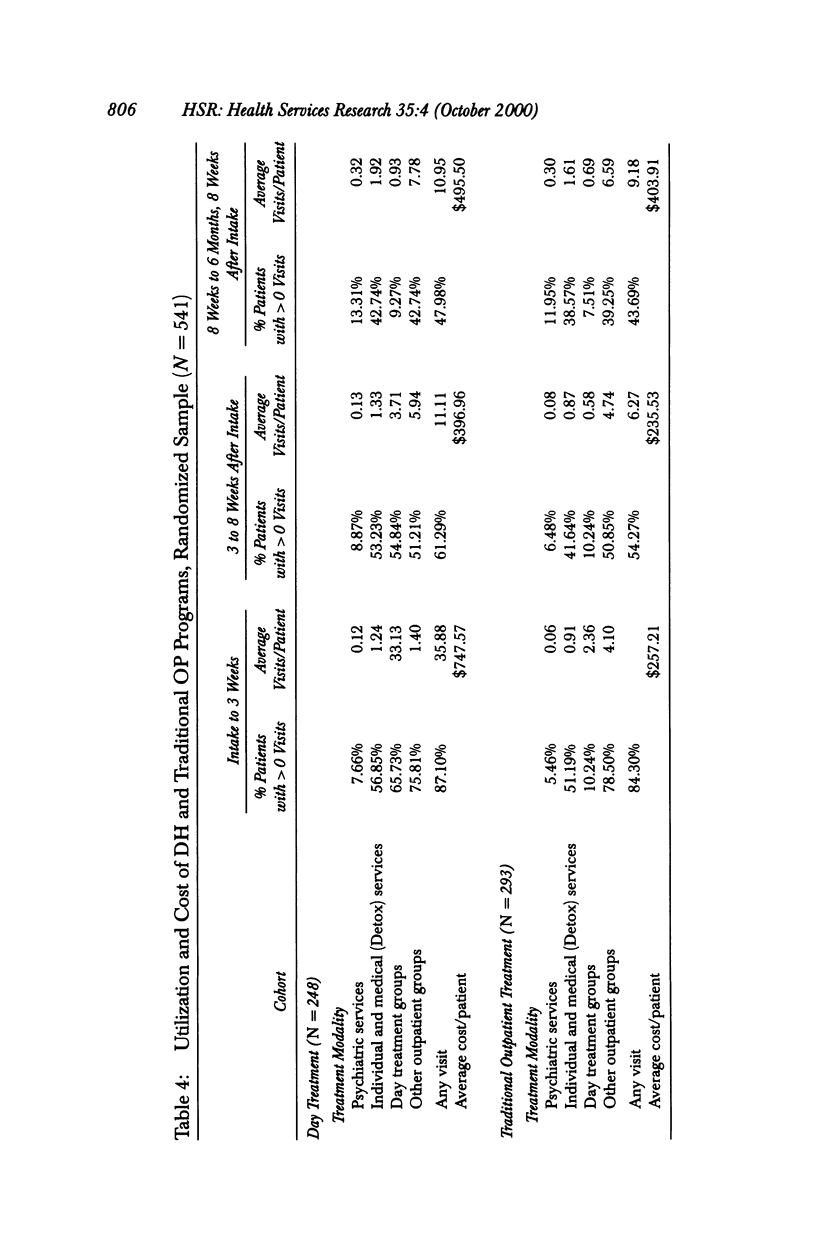
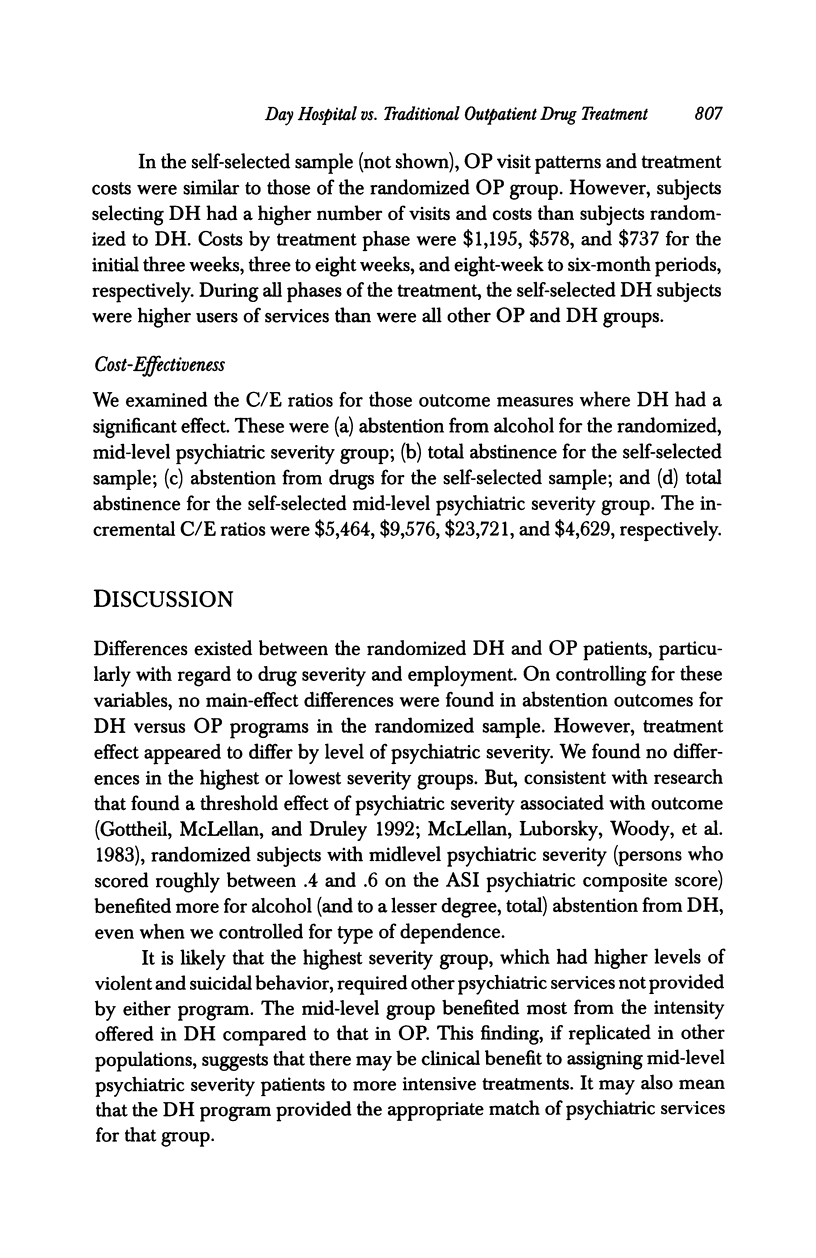
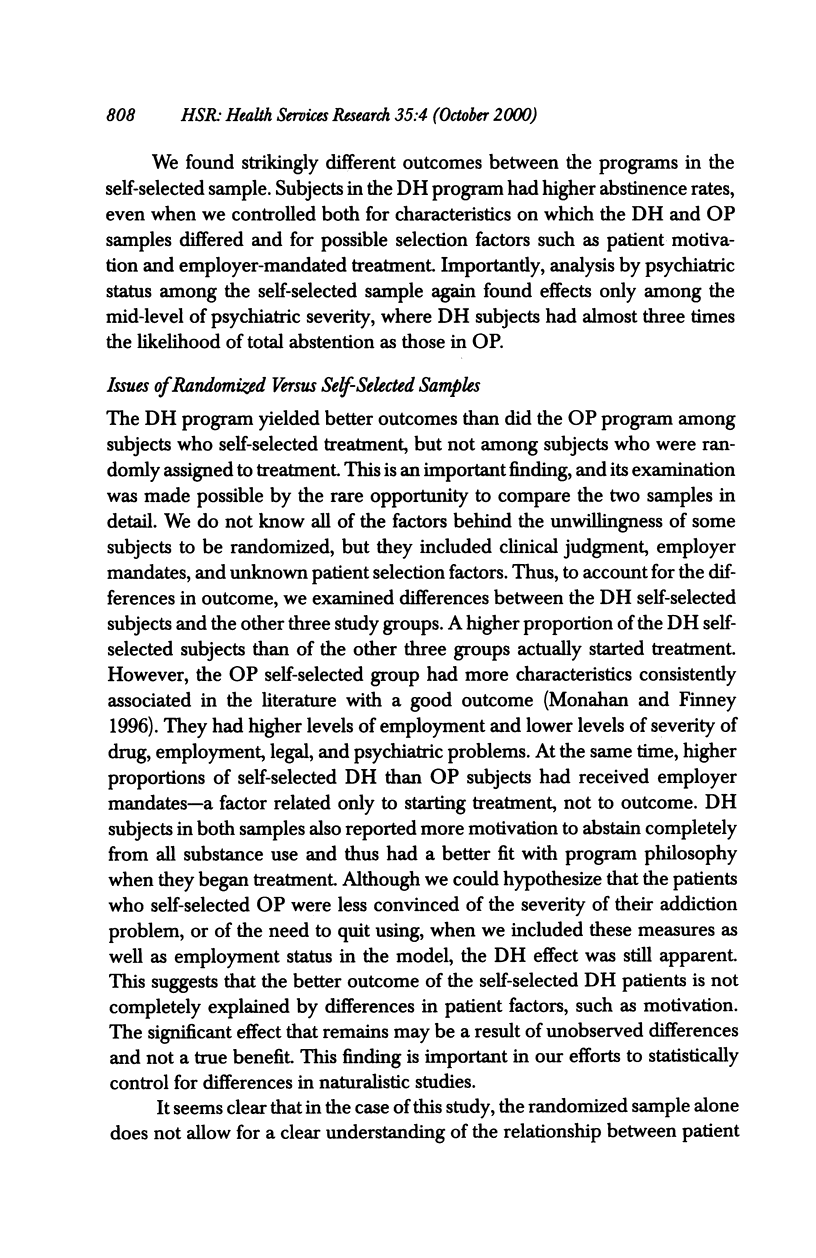
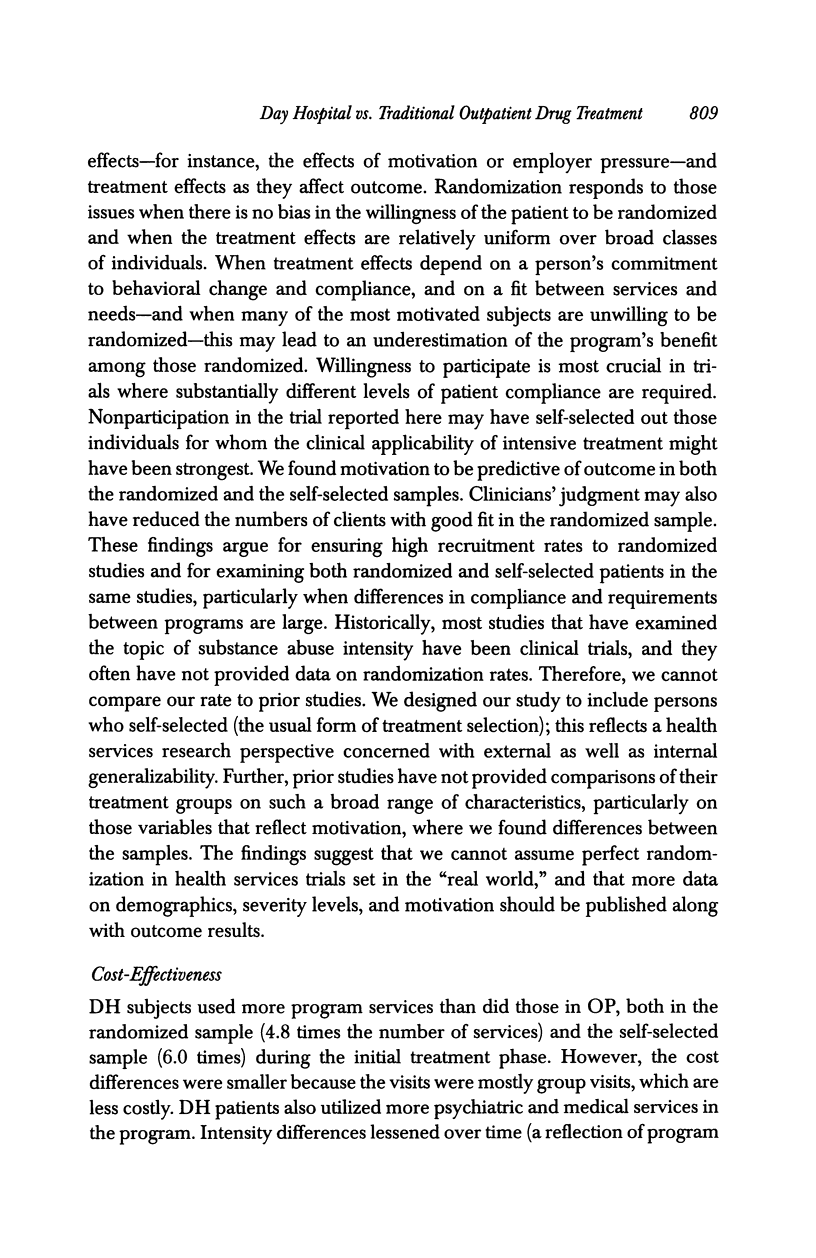
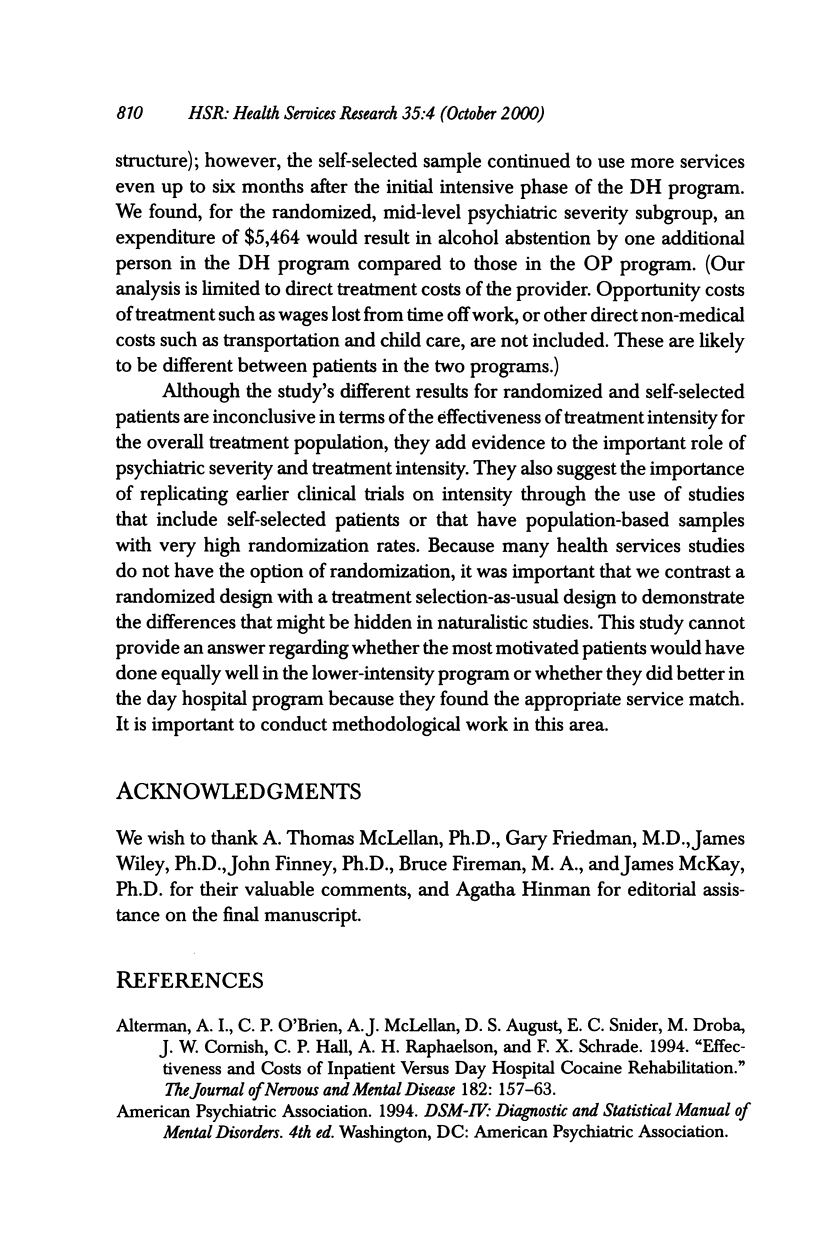
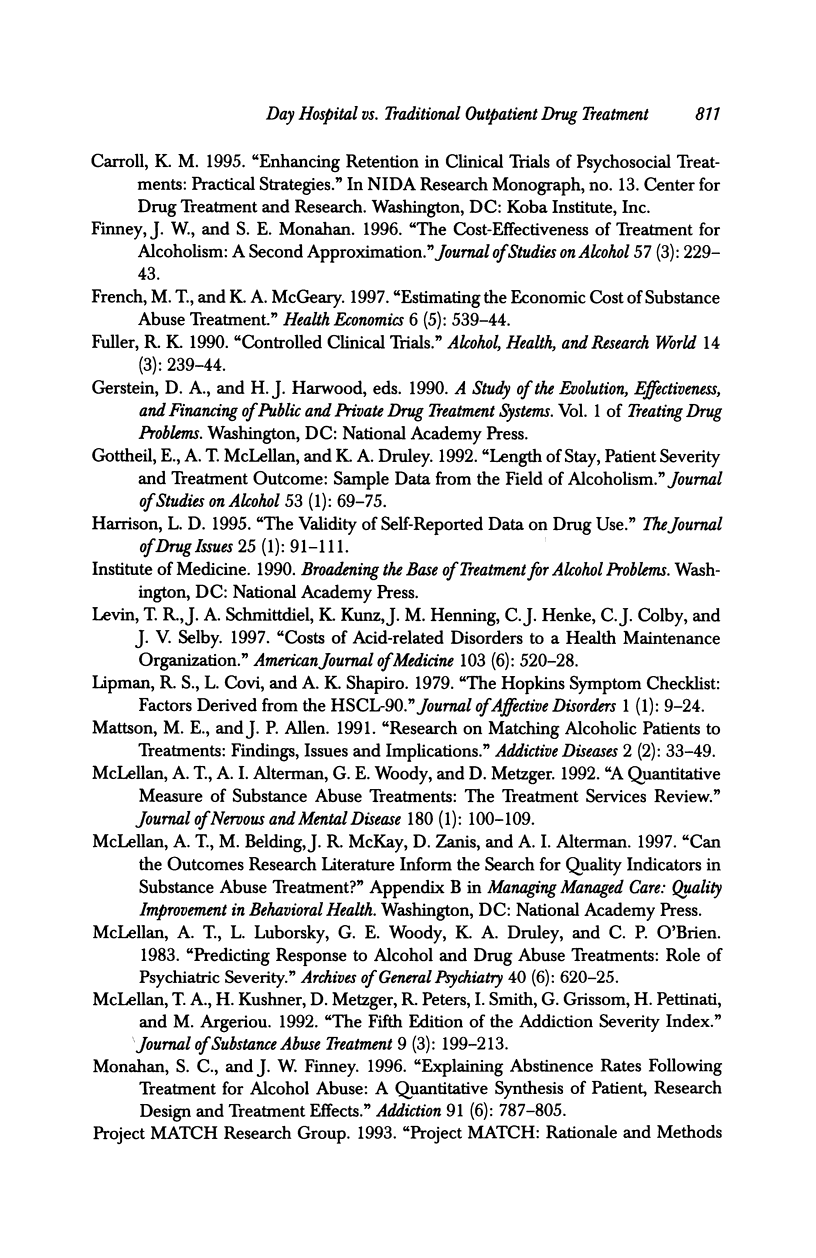
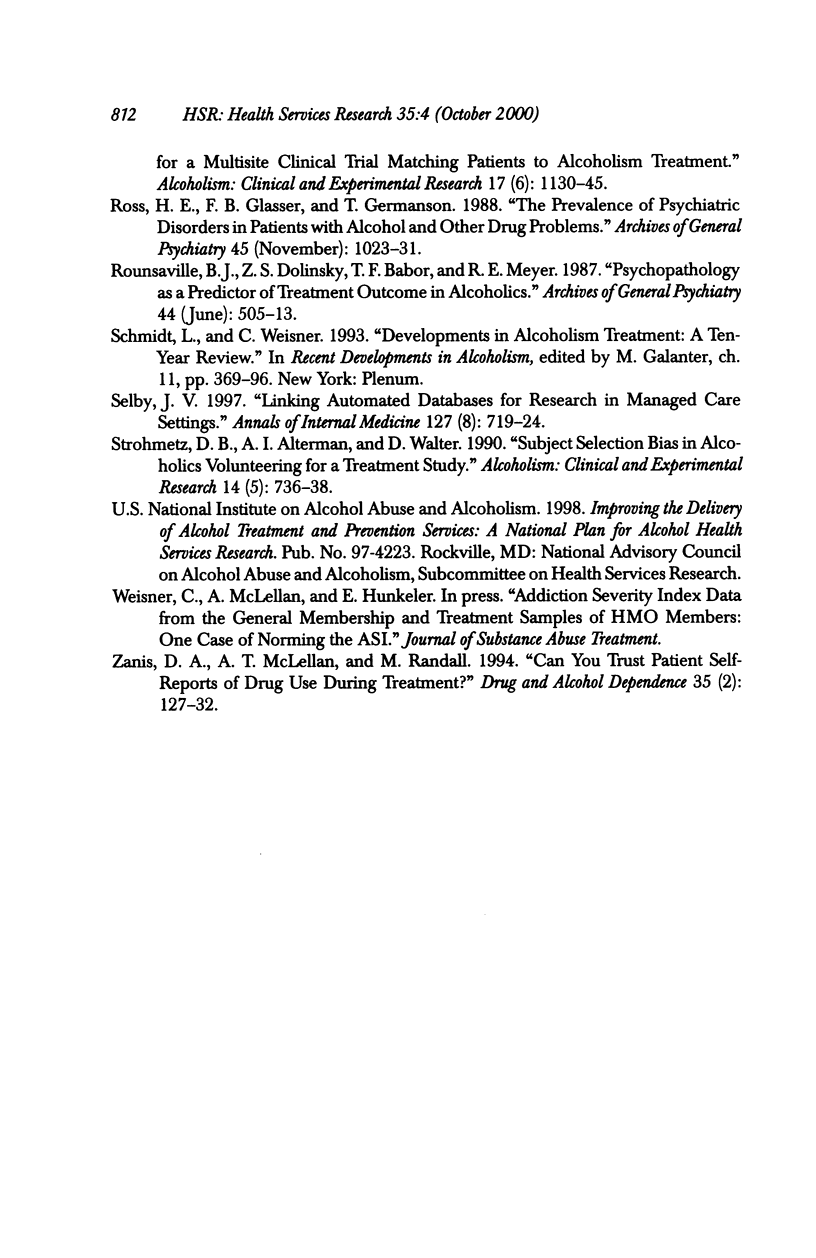
Selected References
These references are in PubMed. This may not be the complete list of references from this article.
- Alterman A. I., O'Brien C. P., McLellan A. T., August D. S., Snider E. C., Droba M., Cornish J. W., Hall C. P., Raphaelson A. H., Schrade F. X. Effectiveness and costs of inpatient versus day hospital cocaine rehabilitation. J Nerv Ment Dis. 1994 Mar;182(3):157–163. doi: 10.1097/00005053-199403000-00005. [DOI] [PubMed] [Google Scholar]
- Finney J. W., Monahan S. C. The cost-effectiveness of treatment for alcoholism: a second approximation. J Stud Alcohol. 1996 May;57(3):229–243. doi: 10.15288/jsa.1996.57.229. [DOI] [PubMed] [Google Scholar]
- French M. T., McGeary K. A. Estimating the economic cost of substance abuse treatment. Health Econ. 1997 Sep-Oct;6(5):539–544. doi: 10.1002/(sici)1099-1050(199709)6:5<539::aid-hec295>3.0.co;2-0. [DOI] [PubMed] [Google Scholar]
- Gottheil E., McLellan A. T., Druley K. A. Length of stay, patient severity and treatment outcome: sample data from the field of alcoholism. J Stud Alcohol. 1992 Jan;53(1):69–75. doi: 10.15288/jsa.1992.53.69. [DOI] [PubMed] [Google Scholar]
- Levin T. R., Schmittdiel J. A., Kunz K., Henning J. M., Henke C. J., Colby C. J., Selby J. V. Costs of acid-related disorders to a health maintenance organization. Am J Med. 1997 Dec;103(6):520–528. doi: 10.1016/s0002-9343(97)00308-2. [DOI] [PubMed] [Google Scholar]
- Lipman R. S., Covi L., Shapiro A. K. The Hopkins Symptom Checklist (HSCL)--factors derived from the HSCL-90. J Affect Disord. 1979 Mar;1(1):9–24. doi: 10.1016/0165-0327(79)90021-1. [DOI] [PubMed] [Google Scholar]
- Mattson M. E., Allen J. P. Research on matching alcoholic patients to treatments: findings, issues, and implications. J Addict Dis. 1991;11(2):33–49. doi: 10.1300/j069v11n02_03. [DOI] [PubMed] [Google Scholar]
- McLellan A. T., Kushner H., Metzger D., Peters R., Smith I., Grissom G., Pettinati H., Argeriou M. The Fifth Edition of the Addiction Severity Index. J Subst Abuse Treat. 1992;9(3):199–213. doi: 10.1016/0740-5472(92)90062-s. [DOI] [PubMed] [Google Scholar]
- McLellan A. T., Luborsky L., Woody G. E., O'Brien C. P., Druley K. A. Predicting response to alcohol and drug abuse treatments. Role of psychiatric severity. Arch Gen Psychiatry. 1983 Jun;40(6):620–625. doi: 10.1001/archpsyc.1983.04390010030004. [DOI] [PubMed] [Google Scholar]
- Monahan S. C., Finney J. W. Explaining abstinence rates following treatment for alcohol abuse: a quantitative synthesis of patient, research design and treatment effects. Addiction. 1996 Jun;91(6):787–805. doi: 10.1046/j.1360-0443.1996.9167876.x. [DOI] [PubMed] [Google Scholar]
- Ross H. E., Glaser F. B., Germanson T. The prevalence of psychiatric disorders in patients with alcohol and other drug problems. Arch Gen Psychiatry. 1988 Nov;45(11):1023–1031. doi: 10.1001/archpsyc.1988.01800350057008. [DOI] [PubMed] [Google Scholar]
- Rounsaville B. J., Dolinsky Z. S., Babor T. F., Meyer R. E. Psychopathology as a predictor of treatment outcome in alcoholics. Arch Gen Psychiatry. 1987 Jun;44(6):505–513. doi: 10.1001/archpsyc.1987.01800180015002. [DOI] [PubMed] [Google Scholar]
- Selby J. V. Linking automated databases for research in managed care settings. Ann Intern Med. 1997 Oct 15;127(8 Pt 2):719–724. doi: 10.7326/0003-4819-127-8_part_2-199710151-00056. [DOI] [PubMed] [Google Scholar]
- Strohmetz D. B., Alterman A. I., Walter D. Subject selection bias in alcoholics volunteering for a treatment study. Alcohol Clin Exp Res. 1990 Oct;14(5):736–738. doi: 10.1111/j.1530-0277.1990.tb01236.x. [DOI] [PubMed] [Google Scholar]
- Zanis D. A., McLellan A. T., Randall M. Can you trust patient self-reports of drug use during treatment? Drug Alcohol Depend. 1994 Apr;35(2):127–132. doi: 10.1016/0376-8716(94)90119-8. [DOI] [PubMed] [Google Scholar]


